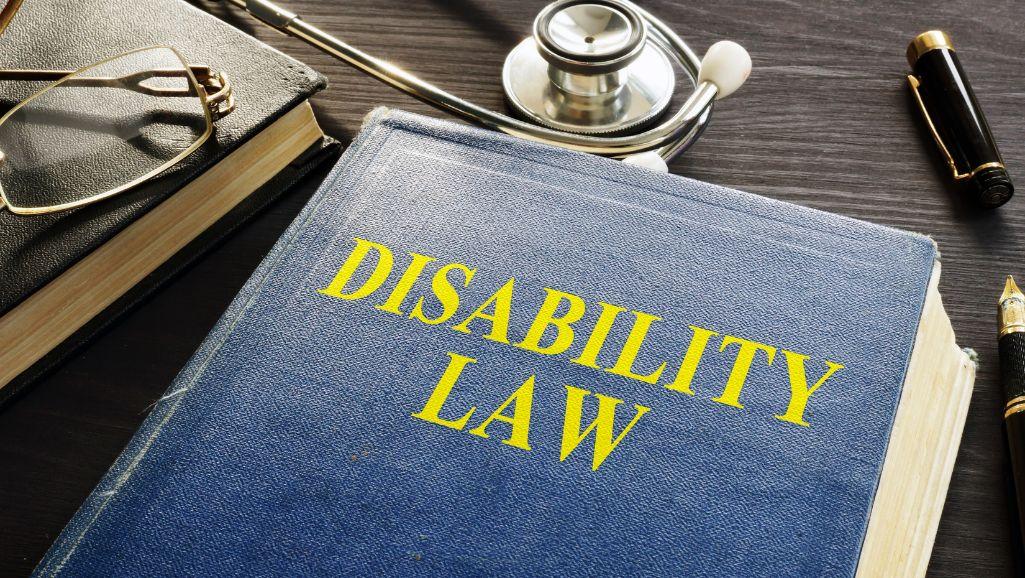Disability Appeals play a crucial role in ensuring that individuals receive the financial assistance and support they need when faced with disabling conditions. Navigating the appeals process can be complex and overwhelming. So having a lawyer by your side can make a significant difference in the outcome and duration of the process.

Understanding Disability Appeals
It can be very upsetting and annoying when someone’s disability claim gets rejected. They may think that they are not getting a fair deal or that no one understands their situation. A denied claim is not necessarily the end of the road. It is where the concept of disability appeals comes into play.
What is a disability appeal?
A disability appeal is a legal process through which an individual challenges the denial of their disability benefits. It involves requesting a review of the original decision by an impartial third party, often an administrative law judge. This judge will reevaluate the case, considering any new evidence and arguments presented during the appeal.
Reasons for denied disability claims:
- Insufficient medical evidence: The initial claim may not have included enough detailed medical documentation to support the extent of the disability.
- Technical errors: Mistakes or inaccuracies in the application or supporting documents can lead to a denial.
- Failure to meet specific criteria: Disability benefit programs have strict eligibility criteria that applicants must meet. A denial could occur if an applicant does not meet these requirements.
- Lack of clarity: The initial application might not have demonstrated how the disability impairs the applicant’s ability to work.
Importance of legal representation:
Navigating the disability appeals process can be complex and challenging, especially when dealing with legal and medical terminology. It is where the importance of legal representation becomes evident:
- Expertise in disability law: The legal framework and regulations that govern disability benefits are complex and intricate. Lawyers in disability law have more knowledge and expertise in this area.
- Maximizing evidence: Attorneys know how to gather and present the necessary medical and non-medical evidence to build a compelling case.
- Crafting legal arguments: Lawyers can construct persuasive legal arguments. They address the specific reasons for the denial and emphasize the applicant’s eligibility.
- Advocacy during hearings: In cases that proceed to a hearing, an attorney can effectively represent the applicant. He can cross-examine witnesses, and present the case to the administrative law judge.
The Role of a Lawyer in Disability Appeals
The role of a lawyer in disability appeals goes far beyond legal expertise. It encompasses strategic guidance, evidence gathering, persuasive argumentation, and dedicated advocacy.
- Expertise in navigating complex procedures: A lawyer who specializes in disability law is well-versed in the nuances of these procedures. They understand the specific steps that need to be taken, the deadlines that must be met, and the legal standards that must be upheld.
- Gathering and presenting evidence effectively: Lawyers are adept at collecting and organizing both medical and non-medical evidence that supports your claim. They know how to obtain comprehensive medical records, expert opinions, and vocational assessments that can bolster your case.
- Crafting persuasive legal arguments: A lawyer can analyze the reasons for the denial. He can craft persuasive legal arguments that address these specific issues. They have the legal acumen to present your case compellingly, highlighting how your disability significantly impairs your ability to work and perform daily activities.
- Advocacy for the applicant: In cases that proceed to hearings or meetings with administrative law judges, a lawyer becomes your advocate in the truest sense. They are well-prepared to represent your interests, cross-examine witnesses, and present your case with confidence.
Step-by-Step Procedure of a Disability Appeal with a Lawyer
Embarking on a disability appeal with the assistance of a lawyer involves a comprehensive and methodical process.
- Initial consultation and case assessment: Your journey begins with an initial consultation with your chosen lawyer. During this crucial meeting, you discuss the details of your case, your medical condition, and the reasons for the initial denial. The lawyer carefully evaluates the strengths and weaknesses of your case, outlining potential legal strategies and options available to you.
- Gathering additional medical and non-medical evidence: Your lawyer will work closely with you to gather comprehensive evidence that supports your appeal. It may involve requesting updated medical records, obtaining expert opinions, and conducting vocational assessments to demonstrate how your disability impacts your ability to work.
- Preparing a strong appeal case: Building on the newly acquired evidence, your lawyer constructs a compelling and cohesive narrative for your appeal. Legal arguments are crafted to address the specific reasons for the denial and highlight your eligibility for disability benefits. Your lawyer’s expertise ensures that your case is presented persuasively and in alignment with the relevant legal standards.
- Submission to the appropriate agency or court: Your lawyer takes care of the intricate paperwork. He is ensuring that all necessary documents are accurately completed and submitted to the appropriate agency or court. Strict adherence to deadlines is a priority, as missing these deadlines could jeopardize the progress of your appeal.
- Attending hearings and representing the applicant: If your appeal progresses to a hearing, your lawyer plays a pivotal role in representing you before an administrative law judge. They present your case, introducing evidence, questioning witnesses, and making legal arguments that advocate for your eligibility for disability benefits. Your lawyer’s courtroom expertise and advocacy skills contribute significantly to the strength of your case.
- Reviewing the decision and potential further actions: Following the hearing or submission of your appeal, your lawyer reviews the administrative law judge’s decision. If the decision is favorable, congratulations are in order. If not, your lawyer advises you on the best course of action. It may involve exploring further appeals or legal remedies.
Factors Influencing the Timeframe of Disability Appeals with a Lawyer
The duration of a disability appeal, when guided by a lawyer, can vary widely based on several factors.
- The complexity of the case: Complex medical conditions or intricate legal issues may require more time for a thorough assessment, evidence gathering, and argumentation.
- Availability of medical records and evidence: Delays in obtaining necessary medical records or expert opinions can extend the process as your lawyer seeks to build a comprehensive case.
- Backlog and caseload of the appeals process: The agency or court processes a large volume of appeals, which can cause delays in scheduling hearings or reviews.
- Timeliness of response from the agency or court: Waiting for decisions from the agency or court can introduce uncertainties into the timeline, especially if there are administrative delays.
- Possibility of settlement or negotiation: Talking to the agency or trying to settle with them may help to resolve the issue faster. But these interactions can also affect the timeline.
Tips for Applicants Considering Legal Representation in Disability Appeals
- Choosing the right lawyer or law firm: Research and select an attorney with a proven track record in disability appeals. Search for lawyers who have a lot of experience and skill in disability law and who have happy and satisfied clients.
- Open communication and collaboration: Maintain regular and transparent communication with your lawyer throughout the process. Provide all necessary information and promptly respond to requests for documents or clarification.
- Maintaining patience throughout the process: Understand that disability appeals, even with legal representation, can take time. Trust the expertise of your lawyer to navigate the process effectively.
Navigating the disability appeals process with a lawyer can significantly impact the duration and success of your appeal. With their expertise, advocacy, and understanding of the procedures, you can increase your chances of a favorable outcome while reducing the stress and uncertainty often associated with the appeals process.
Also Read: Lawyer Drops Your Case? Find Out the Reasons, What’s Next, and Your Roadmap






